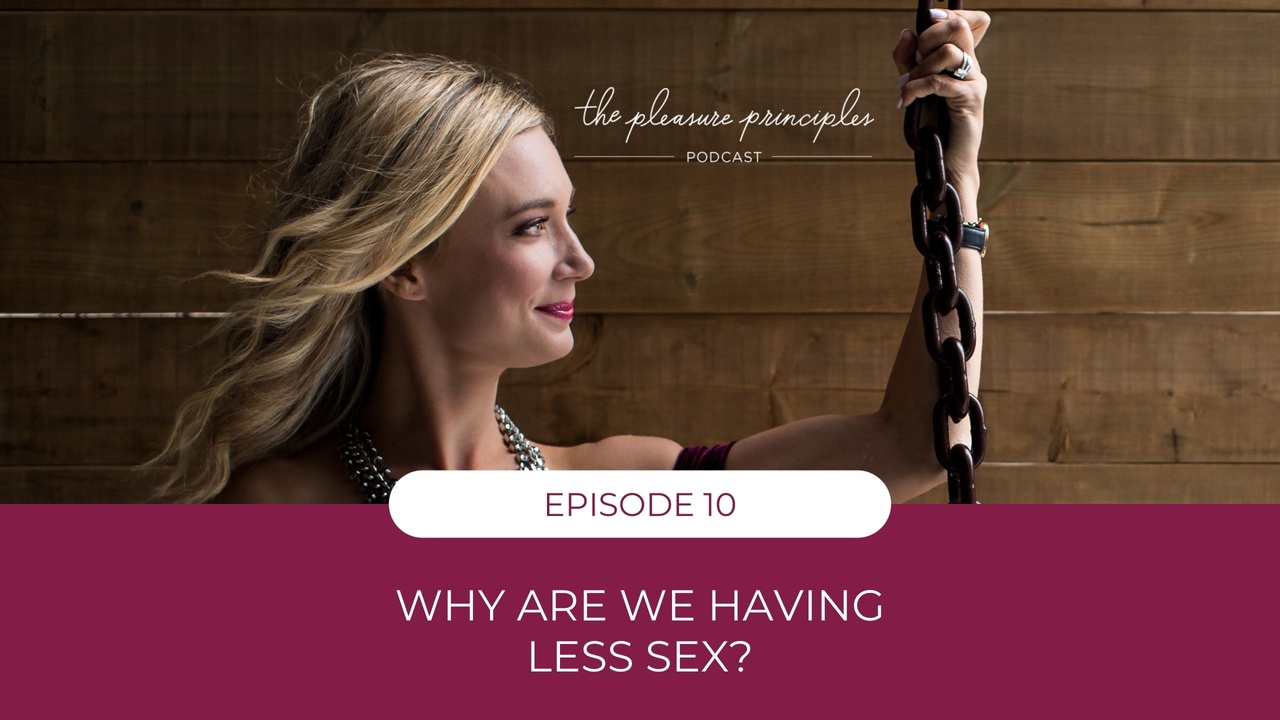Why are we having less sex?

Before I start answering this topic, I want to say thank you for the messages I've been receiving and the reviews you’ve been leaving on ✨The Pleasure Principles Podcast✨. It's heart-warming to know that you are enjoying the content, and it's helping you find more connection, more pleasure in your life and your relationships. So, with that said, why are we (still) having less sex?
When speaking to a women's group last week, I was asked why this is so hard. “My husband and I have things together in pretty much every area of our lives, our careers with our kids, things are going pretty smoothly. We're great communicators. But the truth is, I don't want sex anymore. He feels rejected. And I feel like there's something wrong with me.”
First of all, I want to say that this woman is not alone. This is a global issue, a pleasure pandemic. You've probably already heard that millennials are having less sex than the previous two generations. But the fact is, we are all having less sex. A study back in 2000 reported that people were having 6.3 sexual encounters per month on average. Twelve years later that dropped to 4.8. So that's almost two less sexual encounters per month.
So, why are we having less sex?
Here are the 5 main areas couples struggle with:
- Painful sex. Sex shouldn't be painful, unless you want it to be. Many women, especially if they are menopausal, have resorted to accepting this. They try to “get it over with” or “work through the pain”. You need a health care professional that takes your concerns seriously, and knows how to address the issue, whether it’s a hormone imbalance, a lack of lubrication, a structural issue, or even an undiagnosed STI.
- Thinking that penetration (penis and vagina) is the only way to have sex. Many women think that if there’s no penetration, or there’s an orgasm without penetration, you didn’t have sex. With 70% of women unable to orgasm from penetration alone, figuring out ways to orgasm without penetration should be an exciting adventure with your partner instead of a consolation prize.
- Thinking that sex isn't worth it. We fake headaches or think of better things we could be doing. After having kids, we have less sex and think that’s normal, or we think that there is no such thing as a fulfilling sex life after menopause.
- A hang up about scheduled intimacy. We're all kind of waiting for sex to be spontaneous thanks to the way sexual encounters are portrayed in the media. Scheduled intimacy dates are a great way to make sure that intimacy and connection are a priority in your relationship.
- Faking orgasms. Stop faking orgasms and pretending that things feel good when they don’t. When we are faking pleasure and faking orgasms, we are teaching our partners what we don't want. We are literally reinforcing behaviour techniques for things that don't feel good.
Let’s face it, humans are hardwired for connection. And when we're not having the sex that we want, our relationships are not fulfilling. If you’d like to unpack the myths, improve your mindset and take action towards getting more connection and more s3x in your relationships, sign up for The Pleasure Mindset Bootcamp, coming to you soon. The Pleasure Collective team knows you have this deep underlying desire for more – and we want to help you get there.
For more on why we are having less sex, listen to episode # 10 on Apple. Or on Spotify.
And if you like what you hear, do us a favour and leave a rating or review. Your support helps me get discovered by more women like you.


